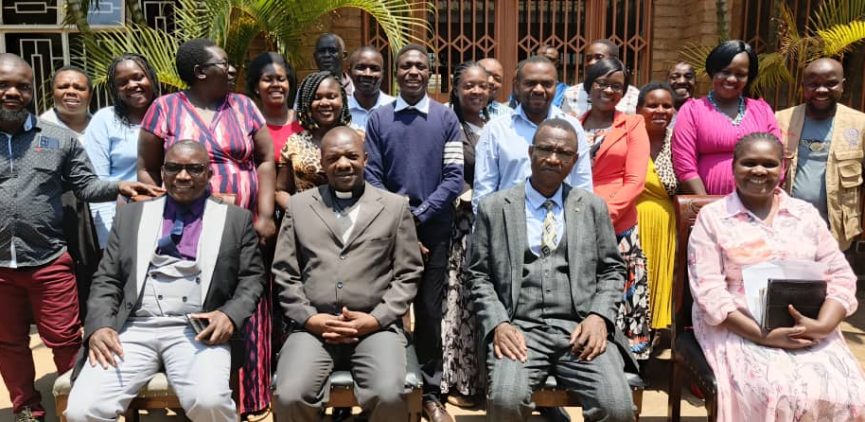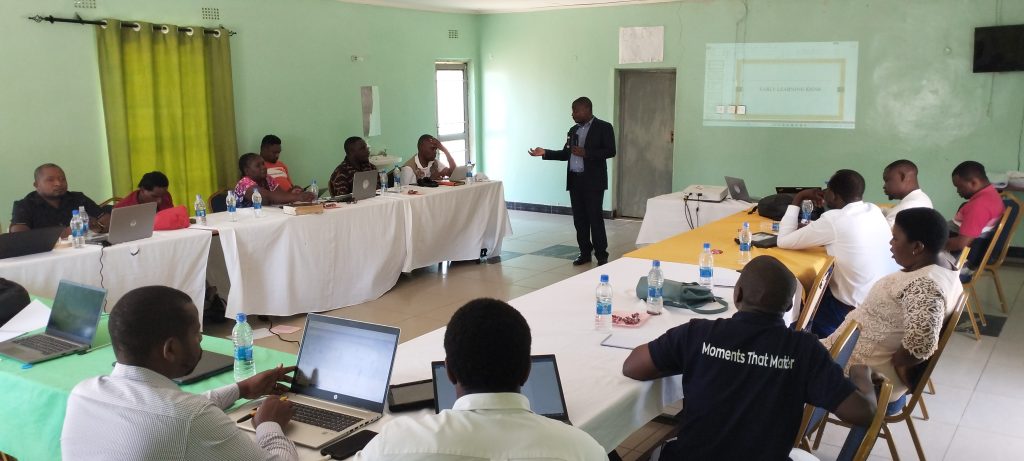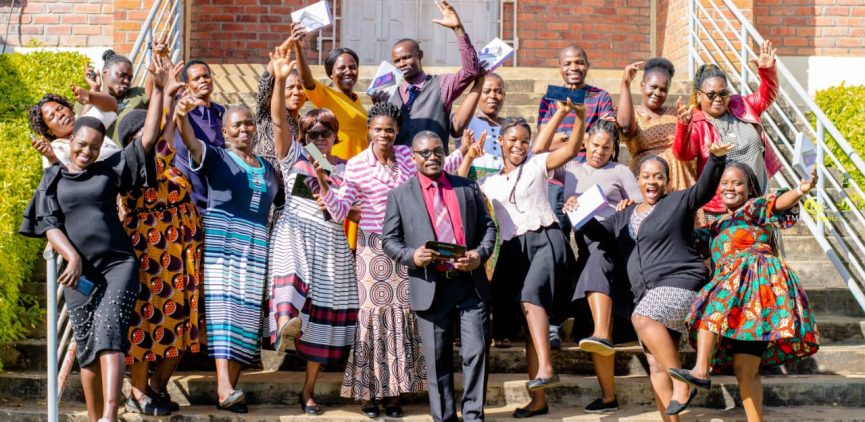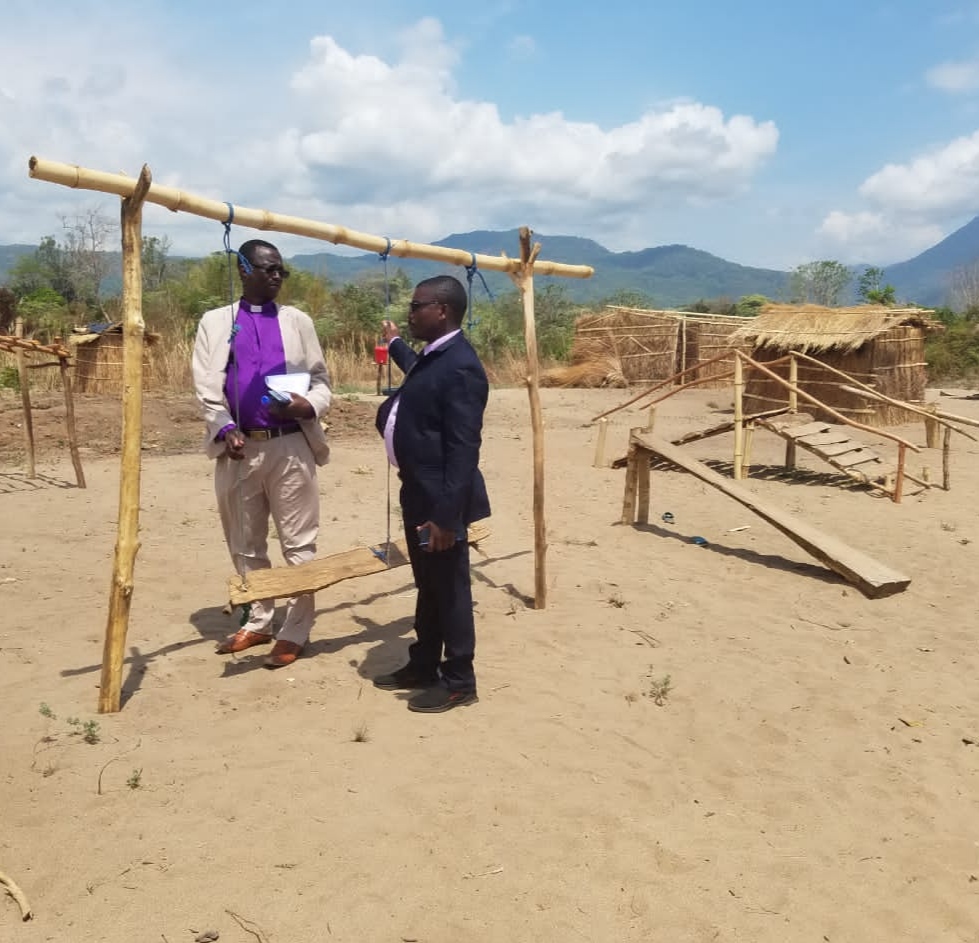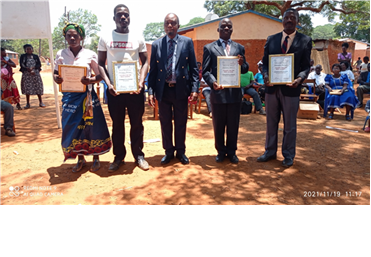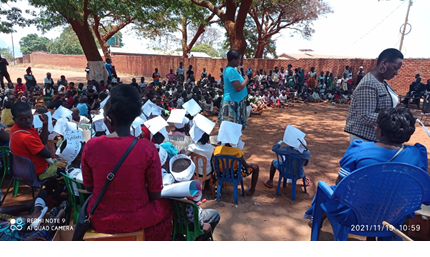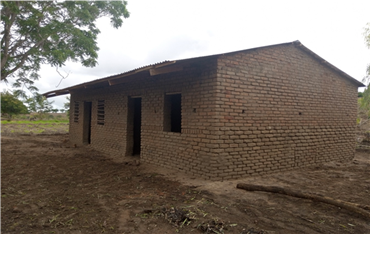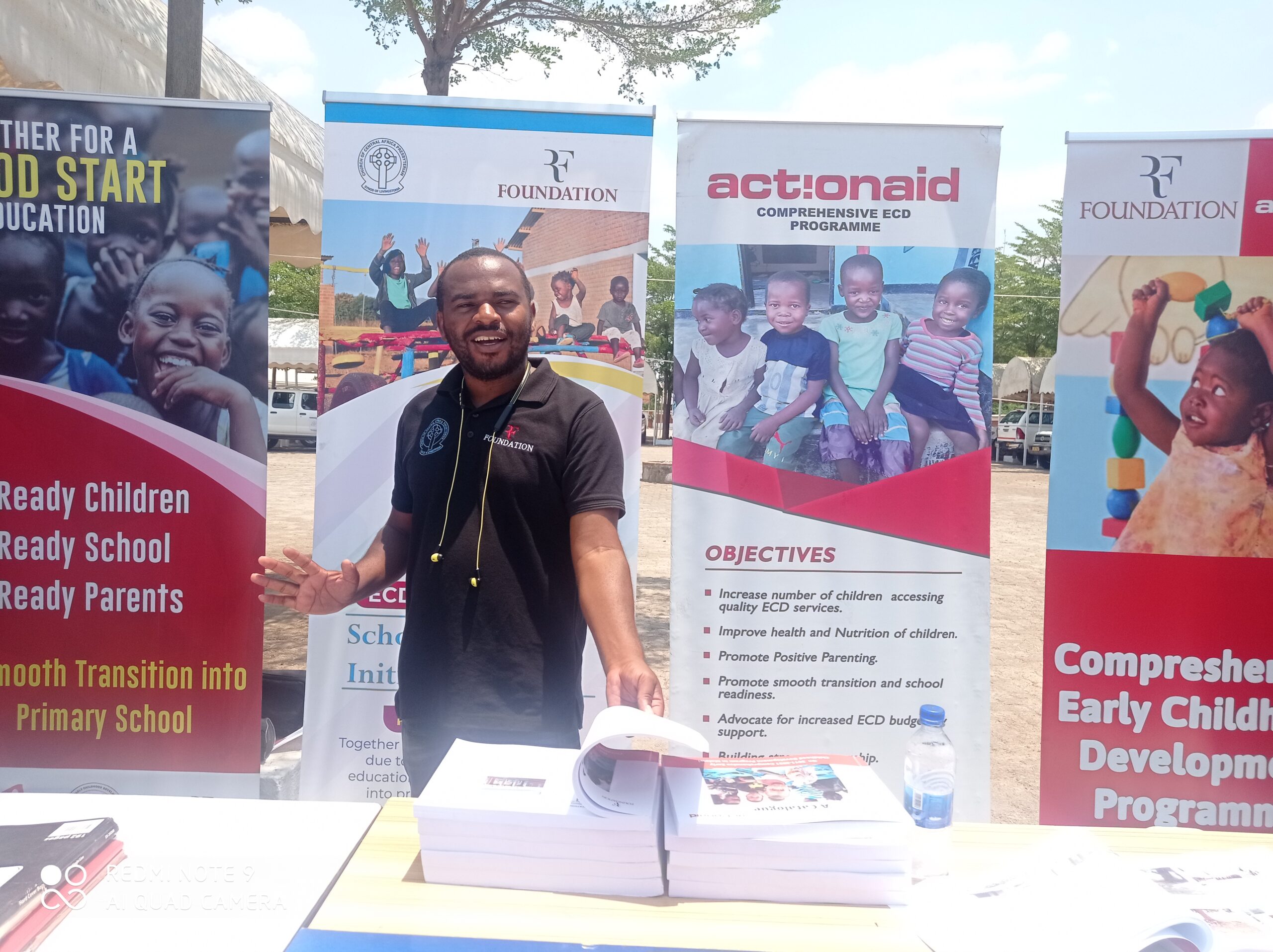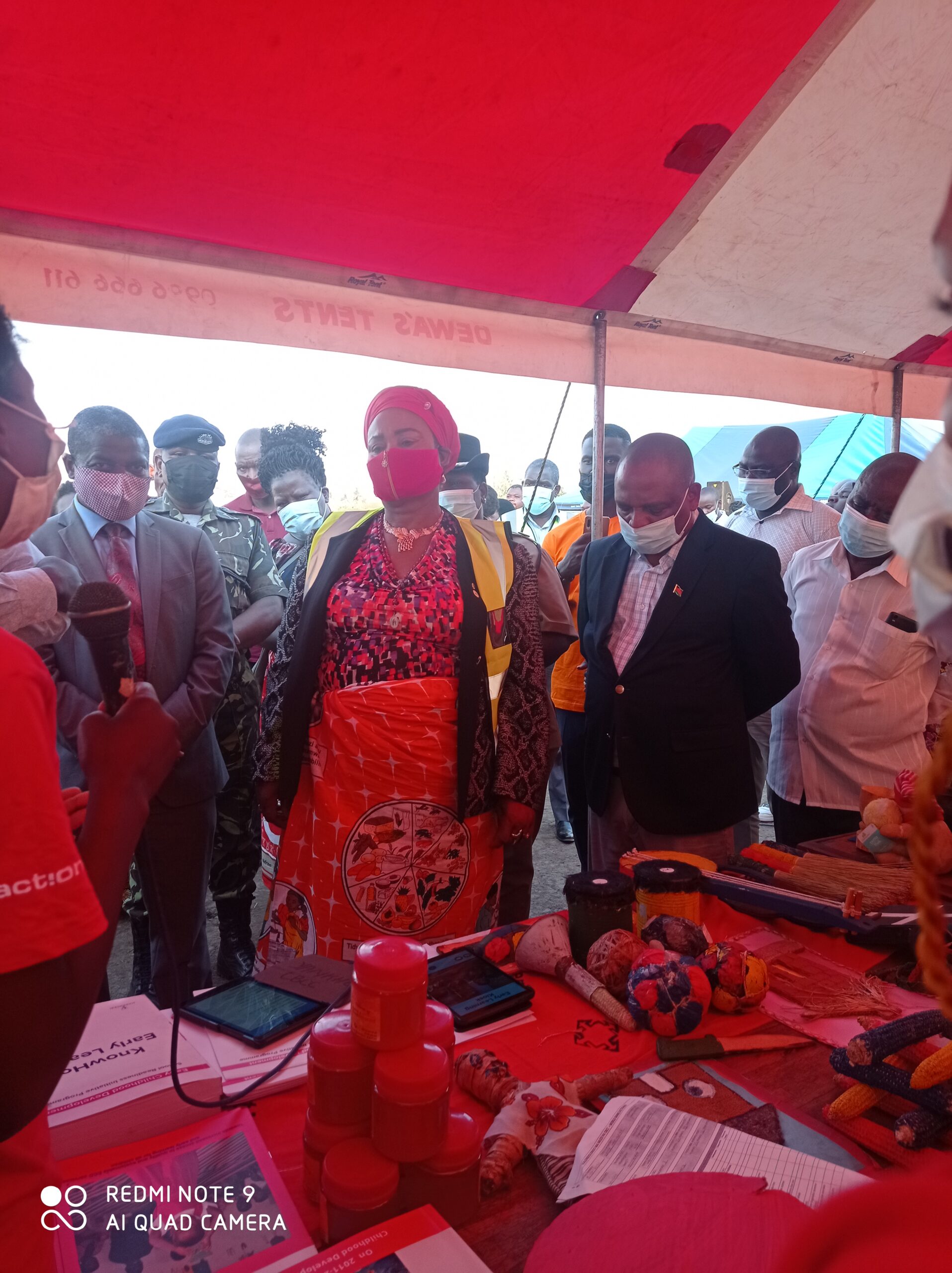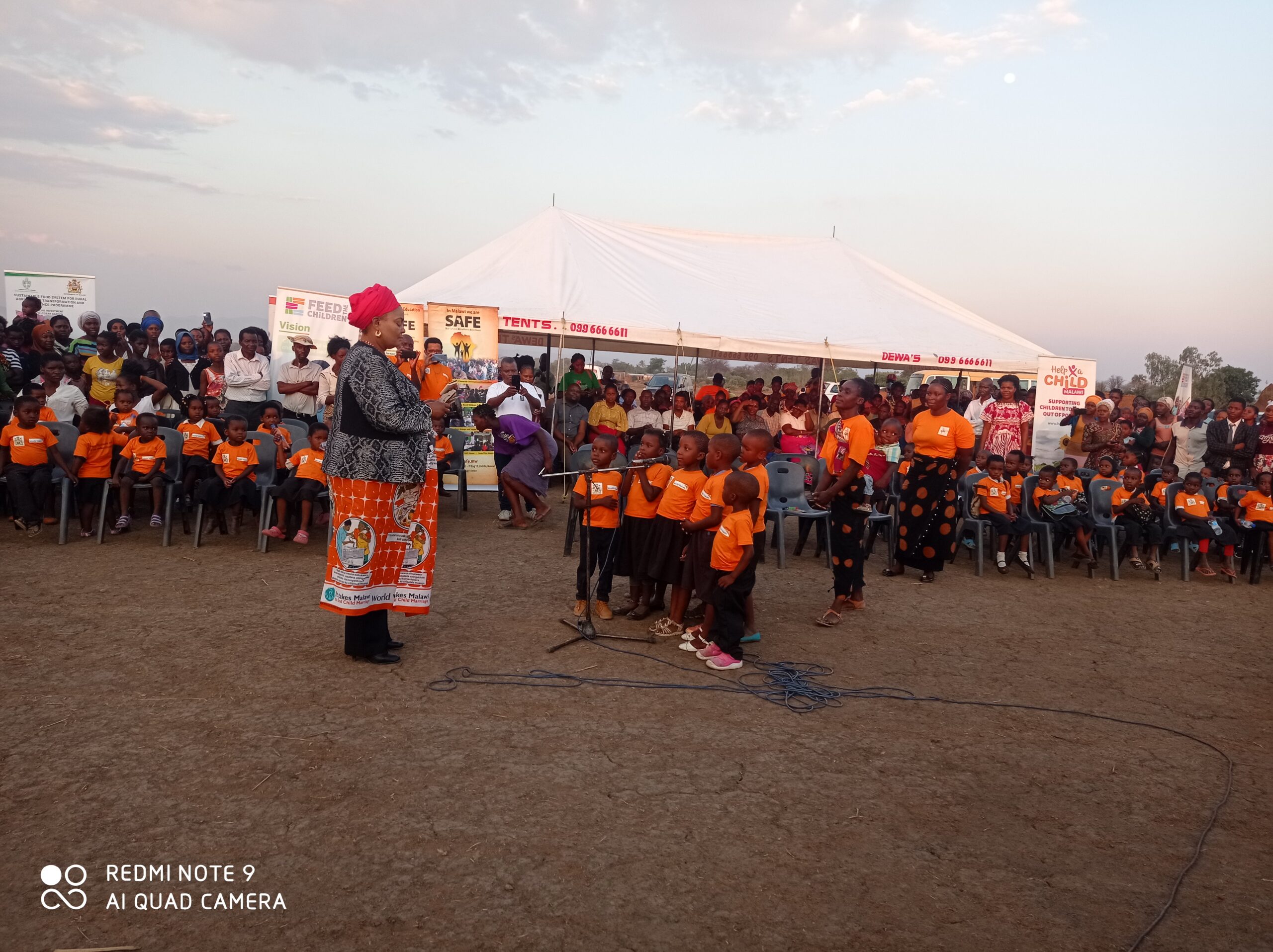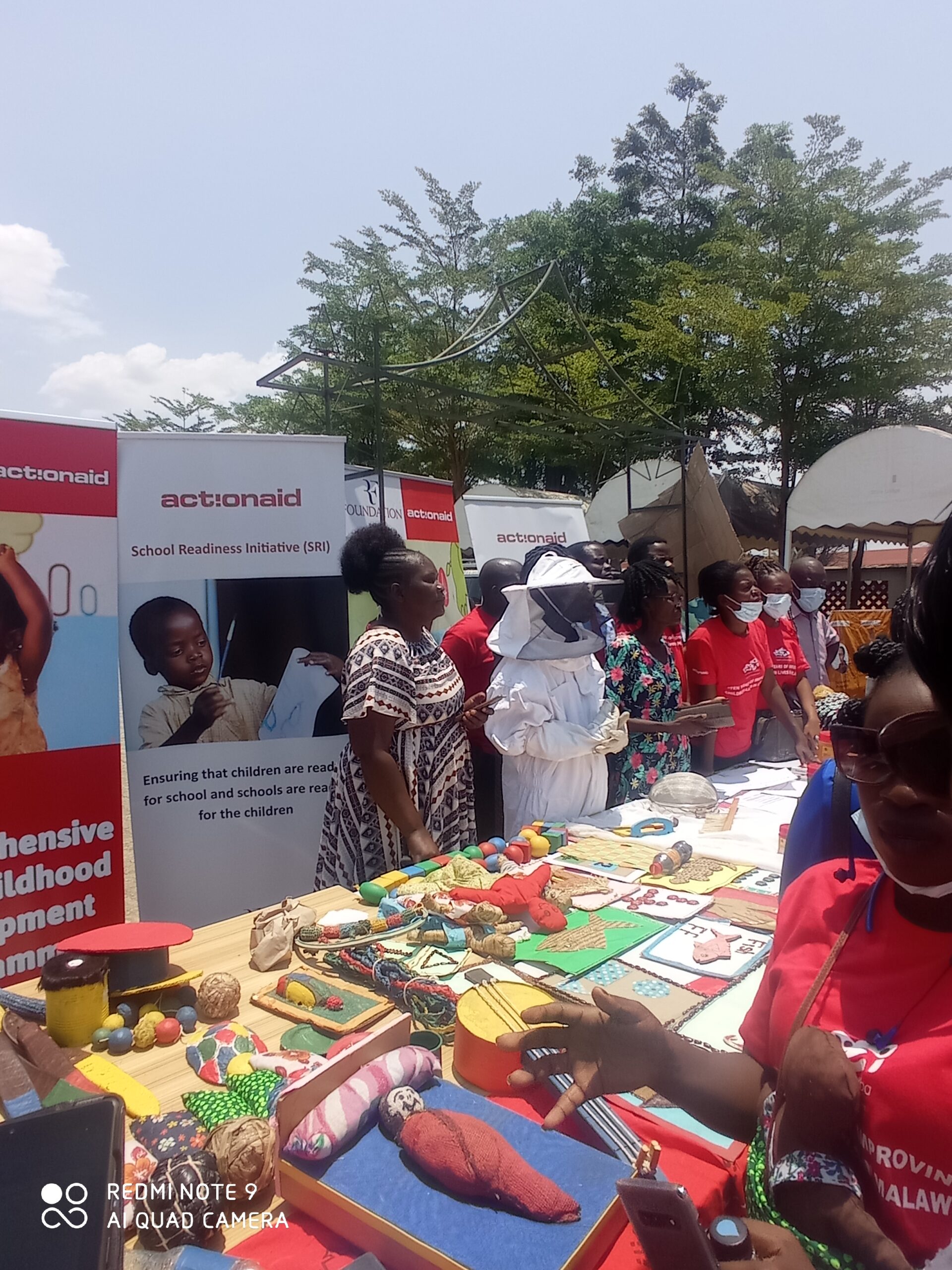CCAP SYNOD OF LIVINGSTONIA
EARLY CHILDHOOD DEVELOPMENT DEPARTMENT
VACANCY ANNOUNCEMENT
The Church of Central Africa Presbyterian (CCAP) Synod of Livingstonia (SoL) in Malawi: is the largest Protestant church in Malawi with over 500 congregations and over 1,000,000 members. CCAP Synod of Livingstonia created the Early Childhood Development (ECD) Department with the mission “to provide quality ECD services and to ensure sustainable ECD centres which will enable a solid foundation in young children’s development”.
The ECD Department is implementing the School Readiness Initiative (SRI) project with funding from the Roger Federer Foundation (RFF) in Mzimba, Karonga and Nkhatabay districts. The School Readiness initiative is aimed at supporting “children to be ready for schools and schools to be ready for children”. The project will be implemented in Primary Schools and their Feeder Community-Based Care Centres (CBCCs). The initiative is aligned with Sustainable Development Goal 4.2 whose focus is on ensuring that by 2030 all girls and boys have access to quality early childhood development, care and pre-primary education so that they are ready for primary education.
The department is inviting applications from suitably qualified personnel to fill the following vacant positions;
- Monitoring, Evaluation, Accountability and Learning (MEAL) Officer – Mzuzu
Reporting to: Project Manager
Role: Implementation of MEAL systems for the SRI project and focal point for all Monitoring, Evaluation, Accountability and learning aspects of the project.
Role Dimension: Work in close collaboration with project staff and key stakeholders such as DSWO and DEMIS office.
Key Performance Areas
- Monitoring, Evaluation and reporting
- Develop quarterly and annual Monitoring, Evaluation, Accountability and Learning plans for the project.
- Coordinate the collection and management of data and other key project information.
- Coordinate routine monitoring, supervision, mentorship and training of staff/relevant stakeholders in MEAL methodologies and tools).
- Provide monthly monitoring reports and support compilation of the quarterly, biannual and annual analytical reports to illustrate the projects’ progress and impact.
- Ensure that the project adheres to Quality Benchmarks as prescribed in the project documents and agreed with the donor.
- Conduct data quality assessments to ensure that data/information reported at all levels is of acceptable quality.
- Setting up and maintenance of Tablets and provide training to project team on Tablets Management and providing relevant information from time to time.
- Provide alerts to the Project Manager and District Project Coordinators on corrective actions required to avoid delays in implementation, including flagging operation issues and risks requiring timely actions.
- In liaison with the Project Manager review progress reports from project team and ensure that they have evidence to back-up and provide feedback to the respective staff.
- Lead on all monitoring, assessments, evaluations including planning and reporting on the same.
- Ensure that the project and the department learn from the monitoring, assessments and evaluations for decision making and improvement in the project design and delivery.
- Accountability
- Lead on project accountability to stakeholders, government, beneficiary communities and donor.
- Ensure that all staff fully understand and promote accountability to the general beneficiary population and to children in particular, through training and coaching.
- Ensure that a proper feedback and complaints mechanism is in place and that all stakeholders are sensitized on how to use it.
- Ensure that feedback and complaints from beneficiaries are properly recorded and acted upon (to improve programming and enhance accountability).
- Ensure that there is no any form of exploitation and discrimination (based on any grounds) of project beneficiaries at all times.
- Learning
- Document and share project performance and learning (through monthly, quarterly and annual reports, etc.) to inform on-going implementation and future programming.
- Make recommendations for improving the efficiency and effectiveness of the project by identifying bottlenecks based on findings from MEAL and analysis of trends and developing plans to minimize or eliminate such bottlenecks.
- Build capacity of staff through training to ensure adoption of new data monitoring tools and quality of data collected
- Keep abreast of new approaches and tools on M&E, and provide training to project team as required.
- Carry out gender analysis to identify, disseminate and address gender barriers to project outcomes and ensure Sex, Age, Disability Disaggregated Data (SADD), Accountability and Gender standards are consistently adhered in project delivery
- In coordination with project staff, ensure proper and regular documentation of lessons learned, case studies and best practices.
- Represent the project at relevant forums as requested.
- Other
- Comply with relevant CCAP SoL, Early Childhood Development Department policies and procedures, including but not limited to: fraud and anti-bribery, child safe-guarding and code of conduct, sexual harassment and gender equality, finance, procurement and human resource.
Qualifications, Experiences and personal attributes
Qualifications and experience
- Bachelor’s Degree in Statistics, Economics, Monitoring & Evaluation, Demography, Population Studies.
- Proven ability to manage data and databases including cleaning, analysing and reporting data
- Demonstrated experience of Management Information Systems, statistical packages and/ or data analysis software and advanced computer skills (word-processing, spread sheets, and databases) are a must.
- At least 2 years’ direct experience in a position of monitoring and evaluation of a medium to large scale projects.
Personal Attributes, skills and competencies
- Good understanding and application of monitoring and evaluation concepts and strategies
- Have excellent report writing and presentation skills.
- Organisational skills, with ability to meet deadlines
- Attention to detail and accuracy
- Written and verbal communication skills
- Interpersonal skills with ability to work both collaboratively and independently
- Confidence and ability to deal with people at all levels across disciplines and cultures
- Proven track record of taking responsibility and ownership for problems and following them through to resolution
- Strong analytical skills
- Optimistic team player
2. District Project Coordinator x2 (Mzimba, Nkhatabay or Karonga)
Reporting to: Project Manager
Staff reporting to this post: Project Officers,
Role: Provide leadership in district-level planning, organization and implementation of the project activities.
Role Dimension: Plans, coordinates and works closely with District Education Manager’s Office, District Social Welfare Office, and other key stakeholders both at community and district levels.
Key Performance Areas
- Organize, coordinate and implement all planned activities in line with the integrated design of the project.
- Ensure high quality activity concept notes and monthly scopes of work are prepared in a timely manner.
- Ensure all relevant stakeholders are informed and involved in the planning and implementation of activities as appropriate.
- Ensure approaches to implementation of project activities are gender sensitive and disaggregated data is collected.
- Provide technical support during trainings and continuous professional development activities for regular teachers, caregivers and Peer Educators/learners
- Provide on-going support to teachers and caregiver to ensure that agreed upon work-plans and activities are implemented in the targeted CBCCs and schools.
- Ensure the documentation of Project learning initiatives and outcomes (case studies, photos, lessons learnt etc.) and help maintain an effective information management system.
- Establish and maintain collaboration with DPD, DEM, and DSWO and other CSO’s and relevant stakeholders at district and community levels to ensure maximum sustainable coordination efforts.
- Work closely with Project Manager and MEAL Officer to ensure that all Project accountability and feedback mechanisms are operational, functional and used, including by children.
- Prepare and submit activity, monthly, quarterly, biannual and annual reports.
- Submit, in consultation with the Project Manager and MEAL officer, reports to relevant district stakeholders i.e., DPD, DEM, and DSWO.
- Comply with relevant CCAP Synod of Livingstonia, ECD Department policies and procedures, including but not limited to: fraud and anti-bribery, child safe-guarding and code of conduct, sexual harassment and gender equality, finance, procurement and human resource.
- Represent the SRI Project in different forums at district level and other locations as requested.
- Any other related duties as assigned from time to time.
Qualifications, Experiences and personal attributes
Qualifications and experience
- A minimum of Bachelors in Early childhood development, social sciences, development studies, education or any relevant field from recognized college or university.
- Familiar with computer packages e.g. Microsoft word, excel, PowerPoint
- A minimum of 2 years working with children in community-based care centres and lower Primary school
- Willingness to ride a motorcycle and those with a valid motorcycle riding license will have added advantage.
Personal Attributes, skills and competencies
- Team player and good communication skills
- Self-starter and ability to work in hard-to-reach areas
- Mature with good sense of judgement, trusted and be familiar with the districts of operations indicated above.
- Have excellent report writing and presentation skills.
- Organisational skills, with ability to meet deadlines
- Proven track record of taking responsibility and ownership for problems and following them through to resolution
- Strong analytical skills
- Optimistic team player
3. Project Officer x 3 (Mzimba, Nkhatabay or Karonga)
Reporting to: District Project Coordinator
Staff reporting to this post: None
Role: Provide field level management, supervision, and technical support to CBCCs, Mentors, Care Givers and Committees, and ensure successful program implementation
Role Dimension: Plans, coordinates and works closely with care givers, mentors, committees, local leaders and stakeholders
Key Performance Areas
- Coordinating and overseer of all project activities of the project at community level
- Budgeting/Planning/Scheduling of activities and submitting the plans to the District Project Coordinator
- Implementation of activities at community level making presentation on progress report and sharing lessons learnt with community stakeholders
- Conducting monthly coaching visits in the ECD Centres and Primary Schools
- Sharing updates on progress of the project with the team either through zoom or physical meeting
- Representing the department in Project related meetings or functions
- Report writing and submission to the District Coordinator
- Working closely with the mentors and caregivers plus other community stakeholder in the community
- Working closely with CPWs and CBOs in the catchment area and ensuring that the project is right on track
- Enhancing good relationship and collaborating with key stakeholders at community and district level i.e., CPWs, CBOs and other CSOs in the catchment area
- Collaborating with other Project Officers from the key implementing partners (Action AID, AECDM). (Sharing lessons learnt, successes and challenges)
- Writing and submission of activity and monthly reports
Qualifications, Experiences and personal attributes
Qualifications and experience
- A minimum of a Diploma in in Early childhood development, social sciences, development studies, education or any relevant field from recognized college or university.
- Familiar with computer packages e.g., Microsoft word, excel, PowerPoint
- A minimum of 2 years working with children in community-based care centres and lower Primary school
- Willingness to ride a motorcycle and those with a valid motorcycle riding license will have added advantage.
Personal Attributes, skills and competencies
- Team player and good communication skills
- Self-starter and ability to work in hard-to-reach areas
- Have excellent report writing and presentation skills.
- Organizational skills, with ability to meet deadlines
- Proven track record of taking responsibility and ownership for problems and following them through to resolution
- Strong analytical skills
- Optimistic team player
Interested candidates should visit https://soliniaecd.org/opportunities/ for more details.
Mode of Application:
Potential candidates who feel they meet the above requirements should submit their applications and Curriculum Vitae complete with names, email addresses and mobile phone contacts of three traceable referees and copies of their academic and professional qualifications. The applicants should quote the job being applied for on the envelope or email heading. All applications should reach the address below not later than 20th June 2022:
The Executive Director
Early Childhood Development Department,
CCAP Synod of Livingstonia
P.O. Box 112,
Mzuzu, Malawi,
Synod of Livingstonia is an equal opportunity employer, female candidates are encouraged to apply. Only shortlisted candidates will be acknowledged.
Email: solinia.ecd.org@gmail.com

